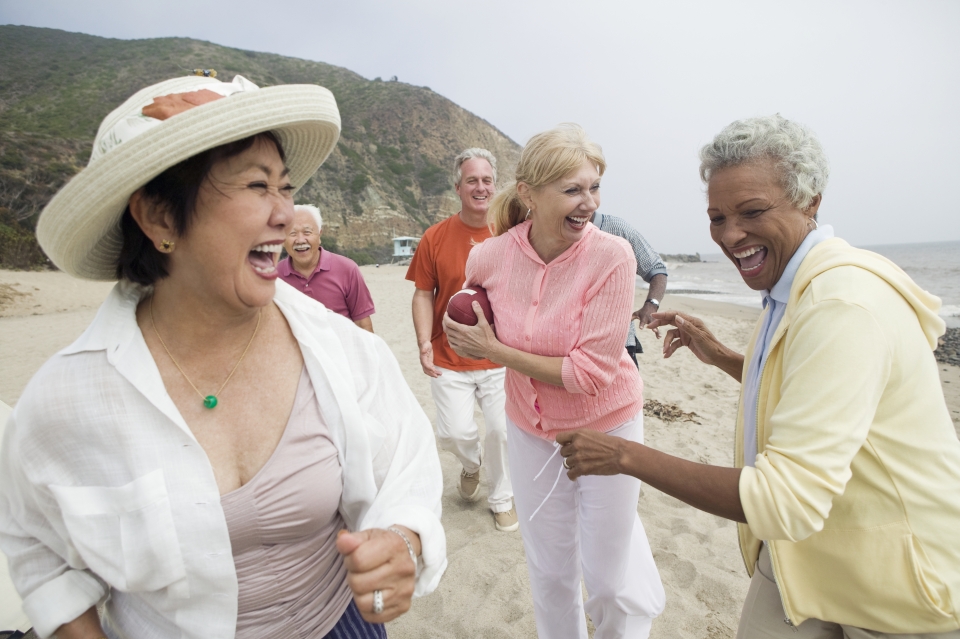The idea of getting older without a spouse or children to rely on raised it’s unexpected head after caregiving. My parent’s needs were fraught with challenges like medical treatments, managing medications, supervising their daily routines and doing house chores. That may sound simple enough but when you throw in a hundred and twenty-five mile drive into the mix, and a full-time job, it becomes wearisome.
The vast majority of women in the United States still have children. But, in 2017, the measure of fertility, the number of births for every 1,000 women of childbearing age, was 60.2, a record low. The total fertility rate — which estimates how many children women will have based on current patterns — is down to 1.8, below the replacement level in developed countries of 2.1.
Since, I have no one to depend on for any personal help, I wanted to know how other women in this situation will retire and grow older alone?
That’s when I launched a closed Facebook group for individuals 50 and over, living alone with limited support from family. After two and half years of managing and participating in it, I’m convinced by creating dynamic local groups for sharing, cooking, entertainment, get-togethers, and health classes, women like us would be a lot happier, more active and significantly empowered since social activity is seen as a key enabler and foundation for better health and aging well.
The Potential Issues of Aging Alone
In the closed Facebook group, a PhD candidate at the University of Texas, Arlington, School of Social Work conducted research for her dissertation, of which over 500 members participated. From that, we discovered surprising preliminary data of what women encounter.
-
78% have no help with bills, financial decisions
-
55% have no help with medical decisions
-
70% have not identified a would-be caregiver
-
35% have no help in a crisis
-
43% have not selected a healthcare proxy
-
52% think they are likely to experience discrimination
When feeling alone, disconnected, and lonely, individuals living at home alone without support of family or a spouse, can attest that these feelings play into depression. And when sadness affects their mood and they feel down, it’s difficult to get motivated to exercise, cook healthy foods, socialize and participate in activities. Their stuck and can’t find a way out. Here’s how to get unstuck:
Start a group for Like-minded women (and men)
Look for people who meet you group criteria. My list includes, the 50+, community-dwelling individuals who are socially and/or physically isolated and have no known family member or designated surrogate available to them. Now, decide what yours will be.
The point is put yourself in an environment where there are people you can connect with over similar interests. Whether it’s a mastermind group, sport league, walking group, Yoga class, a night class at a community college, a cooking class, a MeetUp or a Facebook group… put yourself in situations and in the middle of audiences where you’ll meet multiple new people face to face.
Once you have budding friendships or relationships, stay in touch, keep hanging out, and let it blossom. Your community of support won’t grow overnight. It takes time, effort, and concentrated focus of the intention shared by the members.
How to build a community of support
In my local area, a subgroup of the Facebook members living nearby share rides to medical appointments, meet for lunch, call one another if lonely, take walks, and even share skills. We meet once monthly as a group to bond but here’s what we did in the beginning–created a list:
-
Names, phone, email
-
Skills and tasks we’re willing to do and not willing to do
-
Days and times available
-
Things each member wants and needs
-
Shared community resources
The list can be as long as you wish. A friend in San Diego has a group of people who are legal guardians for one another, prepare meals if sick, medical rides, personal care tasks and even companionship if one cannot leave the house. The group’s intention is care support only not building lifelong friendships, however that’s the outcome for some.
No matter the age, it’s great to discover that you are not alone and there are many out there who seems to be mostly alone too. It’s especially fun and good for your physical and mental health to make close, new friends.
She has become the authority in the aging alone, elder orphan, and solo aging population that understands and supports the individuals facing growing older and alone challenges. Carol and her sisters helped their parents with elder care concerns. Her father lived with Alzheimer’s disease, and her mother developed a chronic heart condition. After they passed, she questioned, “who will do all that for me?” Carol has no spouse, partner, or children to count on.
Carol Marak

